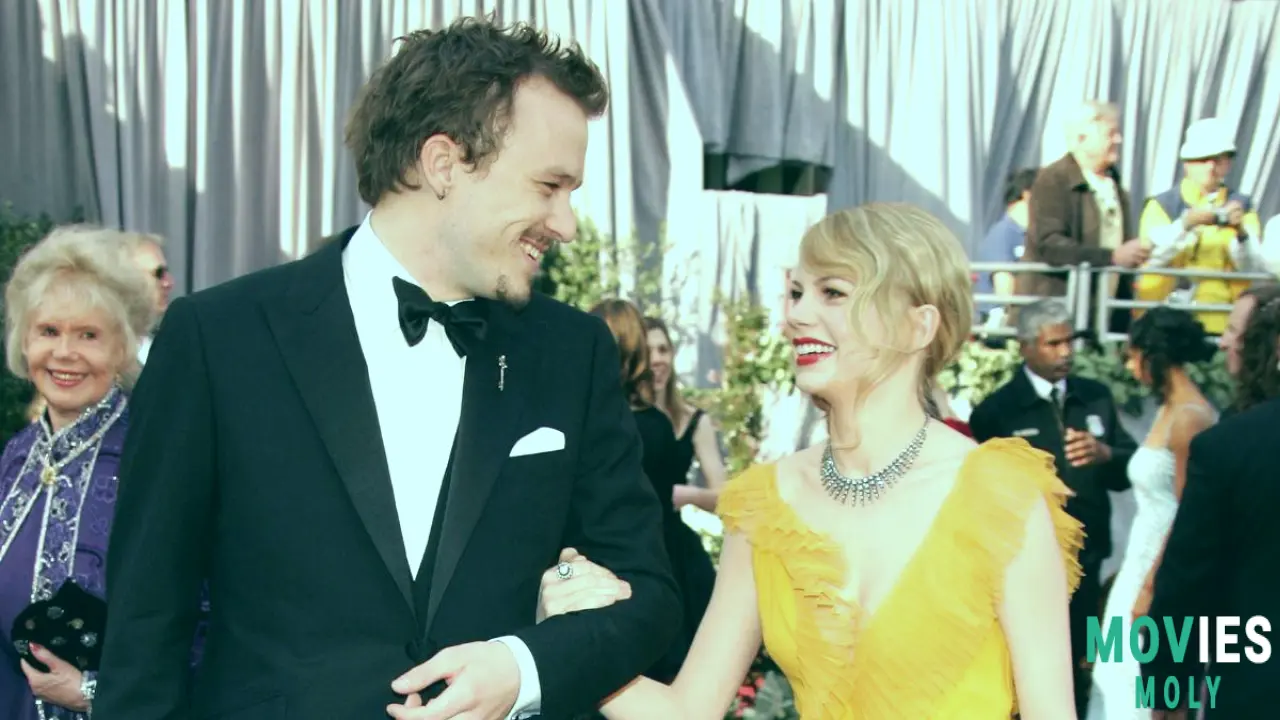By Nicolas Ayala
Michelle Williams isn’t just back in the conversation — she’s crashing the gates with the kind of performance that sneaks up on you and lingers in your bones. Her latest, FX/Hulu’s Dying For Sex, isn’t a superhero saga or a monster franchise, but in terms of emotional punch and cultural resonance, it lands squarely in that genre of work that changes the game. Adapted from the Wondery podcast of the same name, the limited series sees Williams embodying Molly, a woman with terminal breast cancer who breaks free from her emotionally sterile marriage and embarks on a wild, messy, and deeply human sexual odyssey.
Michelle Williams' latest role redefines courage through intimacy and humor“Get it. It belongs to you,” Williams says, distilling the core takeaway of Dying For Sex — a phrase that could easily double as her career mantra. The show grapples with what it means for a woman to reclaim her body, her desire, and her agency when time is running out. And Williams — with her signature blend of vulnerability and steel — delivers every scene like it’s a mission to liberate not just her character, but every viewer who’s ever been taught that female pleasure is optional, taboo, or irrelevant.
Watched solo, as NPR’s Tonya Mosley confesses she had to after seeing the first episode, Dying For Sex is the kind of project that demands privacy. That space to sob, laugh, and cringe without an audience. It’s a comedic tragedy, a raunchy therapy session, and a love letter to female friendship all rolled into one. And Michelle’s chemistry with Jenny Slate, who plays the unwaveringly supportive Nikki, feels so natural it might as well have been improvised in a Brooklyn loft.
From adolescent emancipation to emotional excavation: Williams’ journey through cinema and self
Williams’ path to this moment is as layered as the characters she inhabits. From her early days as Jen Lindley on Dawson’s Creek — where she ran emotional tightropes in teenage angst episodes — to her bone-deep portrayal of Gwen Verdon in Fosse/Verdon, for which she won an Emmy, Michelle has been excavating the female interior for decades. She describes her work as a “conduit to the world,” a place where she gains understanding because, as she puts it, “without it, I really had nothing to show for myself.”
She was emancipated at 15 to work legally in Hollywood, and never stopped striving for that elusive truth that separates performance from revelation. Her Oscar-nominated role in Blue Valentine saw her battling emotional collapse onscreen in ways that mirrored — and perhaps foreshadowed — her real-life journey with love, loss, and parenthood.
Michelle Williams’ real-life heartbreak with Heath Ledger adds emotional gravity to her roles
Any profile of Michelle Williams inevitably circles back to her relationship with the late Heath Ledger. The two met on the set of Brokeback Mountain and shared a love that was as intense as it was brief. Their daughter, Matilda, is now a central part of Williams’ life, and her reflections on Ledger — and the time they shared — are marked not by sorrow, but by respectful reverence.
Williams’ account of her “Fort Awesome” phase — a name coined by Jeremy Strong for the group of friends who surrounded her after Ledger’s death — reveals a woman who didn’t just survive, but created a sanctuary of play, love, and acceptance for her daughter. Strong, whom she describes as someone who can “hold the weight of a child’s broken heart,” is not just a co-star but a real-life ally in her ongoing story.
Dying For Sex isn’t just about dying — it’s about finally living on your own terms
What makes Dying For Sex stand apart from the glut of “female empowerment” stories is its refusal to sanitize. Michelle Williams masturbates on camera. She flails through awkward Tinder dates. She laughs in the face of death, not to mask fear, but to reclaim joy. These aren’t scenes designed to shock — they’re sequences of radical honesty from a performer who understands that intimacy onscreen is the new battleground for authenticity.
“It’s possible to be both scared and brave at the same time,” Williams says. That paradox is the throughline of her performance as Molly. A woman who’s never even had an orgasm decides to make a list of sexual experiences before she dies. And in doing so, she reclaims not only her body, but her story.
Michelle Williams’ advocacy for women’s pleasure shines through her fearless performance
Growing up, Williams says, the message about sex was dire: “If you have to, you’ll probably suffer a tragedy, get sick, or die.” Now, with a daughter she describes as “proud” and “accepting,” Michelle is witnessing a generational leap in how young women relate to their bodies and desires. She believes her daughter’s generation is “working together with more equality” and “radical acceptance” than she ever experienced.
Her advice? Pleasure, baby, pleasure. Get it. It belongs to you.
Behind the scenes of Michelle Williams’ most personal performance yet
Williams speaks of her early childhood in Montana with a nostalgic longing for the freedom she once knew — a freedom she associates with exploration, trust, and nature. She links this to her approach to acting, where she seeks “relaxation, expansion, and freedom” even in the most uncomfortable scenes. When asked about performing onscreen masturbation for the first time, her response is pure warrior ethos: “Between action and cut... that is a very safe space because nothing bad can truly happen there.”
Her work on Dying For Sex wasn’t just acting. It was a reclamation. A space to “get free” and a mission to “expand [her] sense of freedom.”
Michelle Williams proves once again that true heroism is emotional, messy, and femaleMichelle Williams doesn’t wear a cape. She doesn’t need to. In a media landscape obsessed with explosions and CGI, she reminds us that real power is found in honesty, in vulnerability, and in the refusal to be invisible. Dying For Sex is her latest weapon in that fight — and it’s as bold, beautiful, and necessary as anything in the Marvel or DC universes.
Williams may not be battling aliens or mutants, but in reclaiming pleasure for women like Molly — and for herself — she’s doing something far more revolutionary. She’s giving us permission to live, love, and laugh in the face of darkness. And that, my friends, is heroic.






